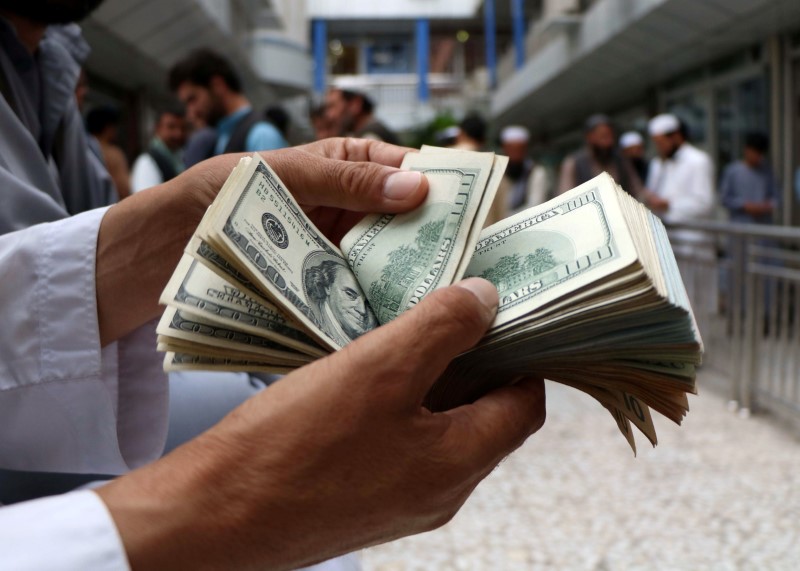By Stanley White
TOKYO (Reuters) - The dollar resumed its relentless climb against major currencies on Thursday as wild financial market volatility and worries over tightening liquidity triggered by the coronavirus pandemic sparked an investor flight into cash.
Sterling teetered near the lowest since at least 1985 against the greenback. The Australian dollar skidded to a 17-year low, while the New Zealand dollar crashed to an 11-year low as investors dumped riskier assets.
The euro briefly rose against the dollar and the pound after the European Central Bank announced a 750 billion euro ($816.83 billion) asset-purchase program in response to the coronavirus outbreak, but even this effort was overwhelmed by a stampede into the dollar.
Investors are selling what they can to keep their money in dollars due to the unprecedented amount of uncertainty caused by the virus epidemic, which threatens to paralyze large swaths of the global economy.
"This is similar to what happened during the global financial crisis in that investors are even selling what are normally considered safe-haven assets," said Junichi Ishikawa, senior foreign exchange strategist at IG Securities in Tokyo.
"The logic is the biggest hedge against risk is holding your money in cash, so the dollar is being bought. Investor uncertainty is about as high as it can get."
The dollar rose 1% against the pound to $1.507, approaching the strongest since at least 1985, as the rush into dollars left no currency unscathed.
The greenback jumped 2% to an 11-year high versus the New Zealand dollar and rose 1% against the Australian dollar to a 17-year high.
The Reserve Bank of Australia pumped a record A$12.7 billion into the banking system on Thursday, but this did little to stop the greenback's advance.
The U.S. dollar has been climbing against most other currencies as a shortage of the currency pushed up swap rates.
Major central banks have taken steps this week increase dollar liquidity, but this has done little to slow the dollar's gains.
Against the yen , the greenback roe 0.6% to 108.69.
In some cases investors are unloading Treasuries and gold in order to keep their money in dollars. This has confounded many analysts because investors normally buy government debt and precious metals during times of uncertainty.
The euro (EUR=EBS) initially rose after the ECB announced a new asset purchase program, but the common currency erased gains to trade little changed at $1.0882.
The ECB's purchase scheme, which was announced at an emergency meeting late on Wednesday, came less than a week after policymakers launched fresh stimulus measures.
Major central banks this week have announced emergency interest rate cuts, asset purchases, and dollar liquidity provisions in an attempt to calm financial markets, but the effect has been less than many policymakers desired.
The dollar funding crisis and consequent rise in the dollar in spot markets (=USD) has caused deep falls in emerging market currencies. The dollar is up 27% so far this year against Brazil's real and around 10% each against the Korean won and Indonesian rupiah
Global markets have been upended in recent weeks as the coronavirus spread from central China and governments responded with increasingly strict restrictions on travel and daily life, disrupting businesses and prompting consumers to stay at home and rein in spending. The virus has now been reported in more than 100 countries and has claimed more than 8,000 lives.
The heightened uncertainty has triggered emergency lockdowns and injections of cash unseen since World War Two, causing investors to abandon traditional trading strategies in favor of selling what they can to keep their money in dollars.
